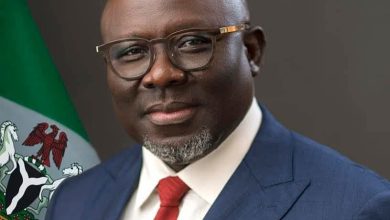Niger Delta
Fubara pledges support for ports development

Rivers State governor, Siminalayi Fubara, has pledged to support the development of the state’s seaports to boost the economy and create jobs.
Governor Fubara made the commitment when he received the Chairman and board members of the Nigerian Ports Authority led by Senator Adedayo Adeyeye, who paid him a courtesy visit on Monday in Port Harcourt.
Fubara proposed a special meeting with the NPA to discuss strategies for maximizing the potential of the Port Harcourt and Onne ports.
He alao recalled how his predecessor, Nyesom Wike, had insisted on similar collaboration with the Niger Delta Development Commission (NDDC).
The governor underscored the importance of seaports to national growth, but lamented the underutilisation of the facilities in the state.
The governor further emphasised that functional ports would create employment opportunities, revitalize surrounding communities, and reduce urban congestion.
He promised to engage local government chairmen in the host areas to ensure a cleaner environment around the ports.
Governor Fubara gave a positive response to the requests presented by the NPA delegation, excluding roads which fall under the Federal Government’s responsibility.
Earlier, the NPA chairman, Senator Adedayo Adeyeye commended the Rivers government for creating a peaceful business environment devoid of multiple taxation or harassment of port operators.
He highlighted the need for better road infrastructure to support port operations.
He described the ports as vital assets to the state’s wealth.
He outlined some challenges facing the ports, including bad roads, poor sanitation, indiscriminate truck parking, minor security concerns, flash flooding, land encroachment by host communities, and the absence of a suitable office complex for the Ports Police Commissioner.
He requested a suitable office complex for the Ports Police Commissioner.
The NPA chairman promised that the agency would continue with its corporate social responsibility interventions in local communities, while seeking closer collaboration with the state government to ensure such efforts align with the needs of host communities.



